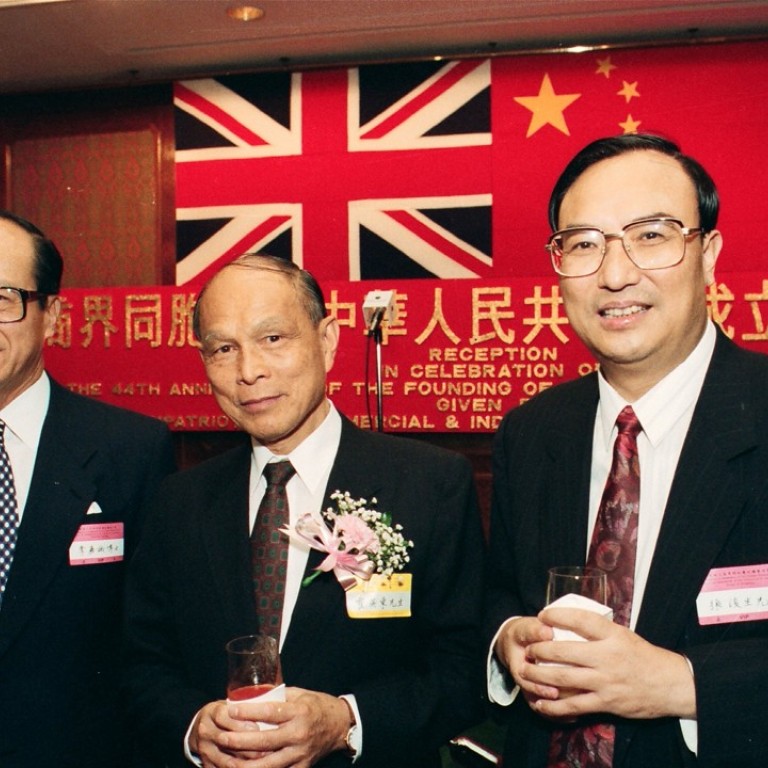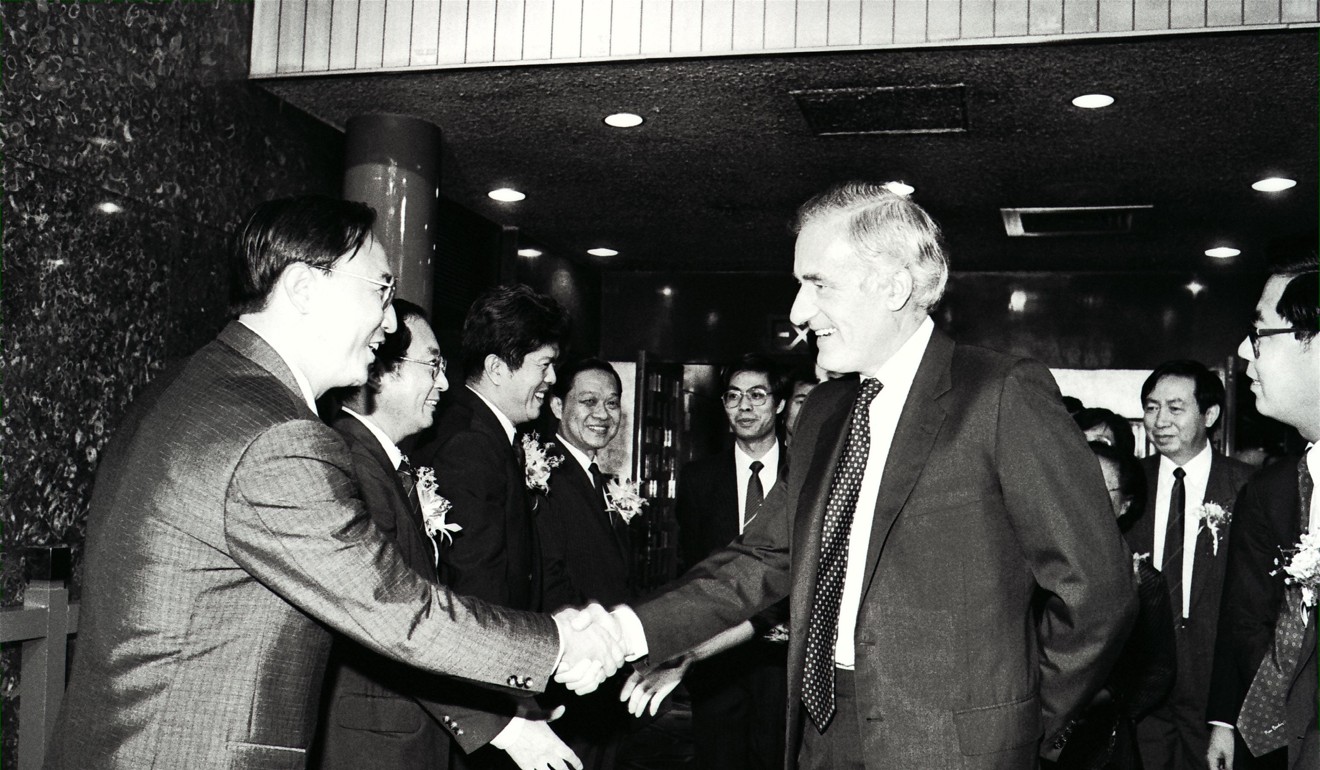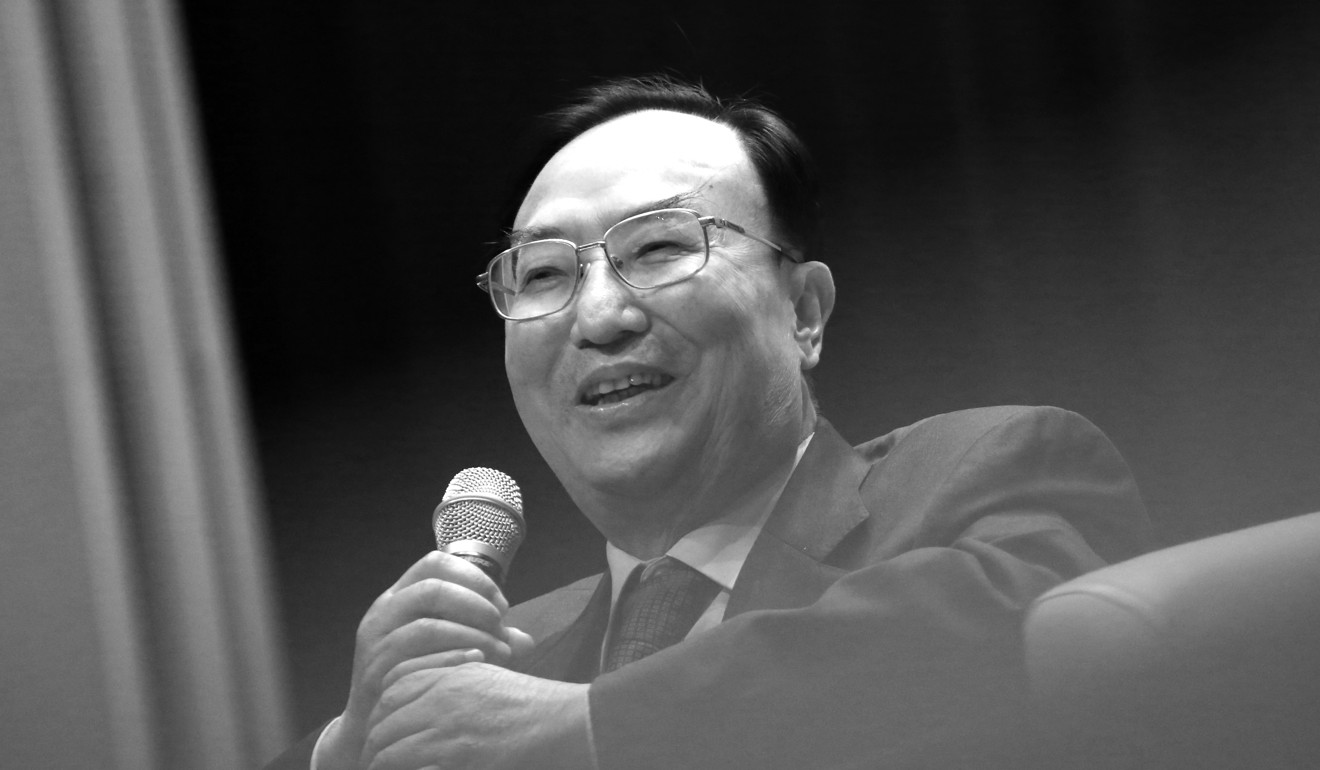
Remembering Zhang Junsheng: Beijing’s envoy who took aim at Chris Patten
Zhang Junsheng, who died aged 82, was a crucial figure during the handover and did not shy away from attacking the city’s final governor
Zhang Junsheng, a former senior mainland envoy based in Hong Kong and vocal critic of the city’s colonial government, has died. He was 82.
The cause of death was not made public, but some media reports said he had a heart problem.
While Zhang made headlines for crossing swords with the last governor Chris Patten and slamming pro-democracy advocates, some pan-democrats remembered him for his sympathetic stance towards protesting students during the Tiananmen Square crackdown in 1989.
According to Chinese media, Zhang reportedly approved the decision by the Beijing mouthpiece Wen Wei Po to run an editorial about the protests consisting of only four Chinese characters – “deep grief” and “bitter hatred”.
But he survived a subsequent purge of the ranks of anyone sympathetic to the students and remained in Hong Kong until his retirement in 1998.
Former Xinhua official Zhang Junsheng calls Hong Kong’s unofficial poll meaningless
Zhang was born in Changting in Fujian province in 1936 and joined the Chinese Communist Party at the age of 20. By 1983, he had risen to the rank of deputy party secretary of Hangzhou in neighbouring Zhejiang province and two years later moved to the Hong Kong branch of the New China News Agency, or Xinhua, where he eventually became deputy director.

The agency was the de facto Chinese embassy in Hong Kong before the handover in 1997, after which its role was taken over by the central government’s liaison office.
Zhang played a role in conveying the Chinese positions on the transition after Beijing and London signed the Sino-British Joint Declaration in 1984.
During his time in Hong Kong he did not shy away from controversy. In 1995, he revealed criticism of Hong Kong’s Bill of Rights that then chief justice Ti-liang Yang made to him in private, causing an uproar. Zhang was reportedly spearheading a drive to get the bill watered down.
Hong Kong should use national education to ‘guide’ youth who took part in Occupy protests, ex-Xinhua official urges
During the peak of a dispute over the political reforms pushed forward by Patten in the 1990s, Zhang became embroiled in a war of words with the British official. The Chinese envoy said Patten was making a proposal that was in breach of what London and Beijing had agreed to and it was impossible for the two sides to maintain good relations should the reforms go ahead.
Zhang called Patten “a prostitute who still wanted an arch to be erected to honour her as a chaste woman”.
He also urged the government to “discipline” RTHK after it set out its policy as an independent broadcaster in response to calls for airtime to publicise the Beijing government’s work on the preparation of the handover.
Since retiring, Zhang worked at various mainland universities and he continued to speak up about Hong Kong affairs, making clear its political status was non-negotiable and despite the Occupy Central movement in 2014, Beijing would not change its position.

That same year Zhang said Patten should stop commenting on the city’s developments as he had “inflicted wounds on Hong Kong” during his term. Many of city’s problems after the handover were “actually caused by [Patten’s] policies prior to 1997”, he said.
Zhang also had harsh words for young activists.
In an interview with the official China News Service last year, Zhang called on Hong Kong to use national education to guide young people and for a review of the “one country, two systems” governing formula.
Patten accused of ‘inflicting wounds’ on city as governor
Former pro-establishment lawmaker Chan Yuen-han recalled that Zhang had maintained close relations with different civil groups ahead of the handover and described him as someone who was willing to listen to others.
“He was a learned person who held strong views. He might not agree with your opinions but was very open to different perspectives,” said Chan, of the Federation of Trade Unions.
Tam Yiu-chung, of the pro-Beijing Democratic Alliance for Betterment and Progress of Hong Kong, praised Zhang as a “man of principle”.
“He had a good understanding of the issues and situation in Hong Kong and had the courage to speak up about his views,” Tam said.
Former lawmaker Cheung Man-kwong, of the Democratic Party, said he was not familiar with Zhang in person but had exchanged fire with him over the city’s democratic progress a number of times.
“The political atmosphere was very bad when Zhang was based in Hong Kong as the central government repeatedly delayed – and denied – Hongkongers’ desire for democracy,” Cheung said.
“Zhang, representing Beijing, made very stern criticisms against the pan-democrats.”
In a 2016 interview conducted by Jane Ho, a writer who is penning a book featuring more than 10 politicians, Zhang suggested Patten’s visit to Hong Kong in the same year was an attempt to consolidate the city’s pro-democracy camp by hitting out at the separatists.
“[Patten] suggested those who advocated Hong Kong independence were wrong and too naive and that they should pursue democracy from other aspects,” Zhang said, according to the interview transcript shared with the Post.
“He was trying to save [the pro-democracy camp]. Martin Lee and Anson Chan Fang On-sang dare not say these words and even if they did, it would be useless,” Zhang continued in the transcript. Lee is the founding chairman of the Democratic Party and Anson Chan is a former chief secretary turned democracy activist.
Chief Executive Carrie Lam Cheng Yuet-ngor on Monday said she was saddened by Zhang’s death. She said he had made many contributions towards preparations for the establishment of the special administrative region.
Chris Patten also offered his condolences to Zhang’s family.


